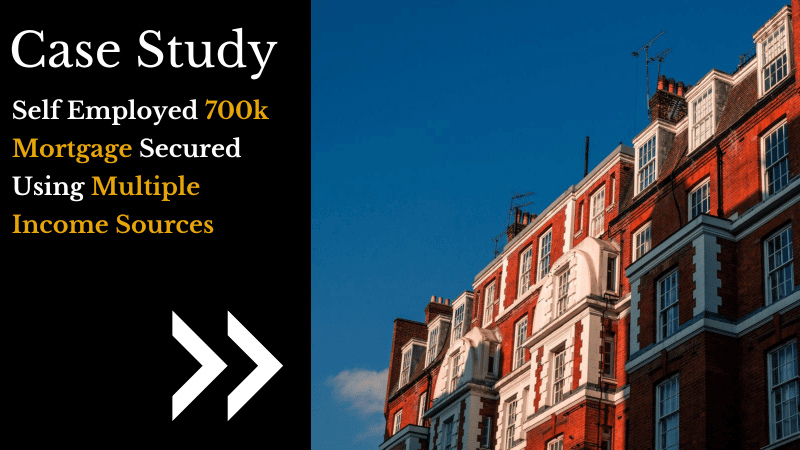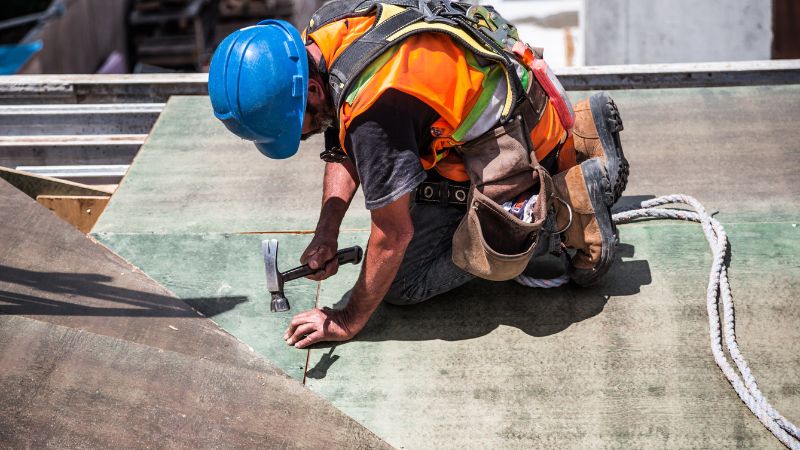Categories
Mortgages for Freelancers

Have you struggled to find a mortgage as a freelancer? Or at least one that's the right size for your needs and at the right interest rate?
You may have heard you need at least 2 years' accounts as a freelancer, or that you can't borrow as much, or that you'll need a bigger deposit.
But this isn't always the case - especially if you approach the right lenders in the right way.
In this guide, we cover the essentials for getting a mortgage as a freelancer, and how you can fast-track the process of finding better rates, a bigger loan size, and more flexible terms.
Contents
Can freelancers get a mortgage?
How to get a mortgage as a freelancer
How much can I borrow as a freelancer?
How many months of freelance income do I need?
Can I get a mortgage without 2 years' tax returns?
How many payslips do you I need?
How many times my freelance salary can I borrow?
Are mortgages for freelancers more expensive?
How hard is it to get a mortgage as a freelancer?
Which bank is easiest to get a freelance mortgage with in the UK?
Can freelancers get a mortgage?
Yes, freelancers can definitely get a mortgage!
It can be more challenging because you have a smaller pool of lenders to choose from.
Why?
Because any form of self employed income is seen as more 'risky' from a lender's perspective, as there's no guaranteed contract behind it.
So, fewer lenders are set up to process self employed mortgage applications - they focus on the large volumes of 'easy' employed income applications.
But what if you've got clients knocking at your door demanding your freelance services? And you've got a track record of earnings proving that your freelance income is sustainable?
Well - the good news is that there are lenders out there that specialise in different types of self employed mortgages - including freelance income, contractor income and many others.
Some have more experience in particular industries and are familiar with the nuances of self employed income.
They understand the peaks and troughs of freelancing, the seasonality of earnings and your career trajectory, for example, and can factor these variables more accurately into their underwriting calculations, ultimately offering you a better mortgage.
So, how do you find them?
Speaking to a mortgage adviser specialising in freelance income is a great place to start...
Our brokers have existing relationships with a wide range of specialist lenders, and we put freelancers and other self employed borrowers in touch with the best ones for their application.
We also package your application in the most positive light for your circumstances, and handle all the discourse between you and your lender to make sure everything runs smoothly.
How to get a mortgage as a freelancer
Firstly, here are the key things lenders look at when they're assessing your freelance income and whether they're able to offer you a mortgage:
Income stability and proof
Lenders want to see that your freelance income is consistent and that you have a history of earning enough to cover your mortgage payments. They'll typically ask for two to three years of tax returns, along with bank statements and invoices to verify your income.
If you don't have 2 years of tax returns, it can be more difficult, but not impossible: self employed mortgages with 1 years accounts.
Credit history
A good credit score is crucial for any mortgage applicant, but it's significant for freelancers. Since your income may be less predictable than someone with a traditional job, a strong credit history demonstrates your financial responsibility.
Here's a related guide on how to improve your credit score for your mortgage application.
Debt-to-income ratio
Your debt-to-income (DTI) ratio is another factor that lenders consider when assessing your mortgage application.
This is how much you're looking to borrow compared to your income.
If you're looking to borrow less than 4.5 times your income, then you'll find it easier to get a mortgage. If you're looking to borrow more than 4.5 times your income, it will be more difficult - but again, not impossible, especially if you use a broker.
Related: Can you get a mortgage for 5 or 6 times your salary?
How much can I borrow as a freelancer?
The amount you can borrow as a freelancer depends on your income and your lender's criteria. Generally, lenders will look at your average income over the past two to three years. They might lend you 4 to 5 times your annual income, but this can vary between lenders.
For example, if you earn £50,000 a year on average, you might be able to borrow £200,000 to £250,000.
Use our calculator tool to get a rough indication of how much you can borrow:

Boosting your borrowing power
There are several ways to improve your chances of borrowing more as a freelancer:
-
Increase your income: The more you earn, the more you can borrow. Look for ways to grow your freelance business, like taking on more clients or raising your rates.
-
Reduce your debts: Paying off debts can lower your DTI ratio, which can help improve your borrowing power.
-
Save for a larger deposit: A larger deposit reduces the amount you need to borrow and makes you a more attractive candidate to lenders.
- Speak to a mortgage broker: We may be able to connect you to a lender willing to lend more than 4.5 times your salary.
How many months of freelance income do you need for a mortgage?
Most lenders prefer at least two years of steady freelance income.
However, some can accept one year of income, especially if you've been in the same line of work for a while. The more stable your income, the better your mortgage chances.
Industry experience
Lenders may be more likely to approve your mortgage application if you demonstrate a history of working in your industry.
For example, if you're recently started freelance consultancy having worked as an industry specialist for many years, your projected income may be more attractive to lenders.
This shows you have the skills and knowledge to maintain your freelance income long-term.
Contract-based freelancers
Lenders may be more lenient with their income requirements if you work on a contract basis. When assessing your application, they can consider your contract value and remaining contract length, as well as any other leads or projects you have lined up for the future.
Can I get a mortgage without 2 years' tax returns?
It's more difficult, but you can find a lender willing to work with you without two years of tax returns. Some lenders might accept one year of tax returns if you have a strong credit history and a stable income.
Alternative documentation
If you don't have two years of tax returns, you may need to provide alternative documentation to prove your income, such as:
1. Bank statements: Lenders may ask for several months of bank statements to show a consistent flow of income into your account.
2. Invoices: Providing copies of invoices can help demonstrate your income and show ongoing work.
3. Client contracts: Contracts with your clients can give lenders confidence that you have a steady income stream.
Specialist lenders
Some specialist lenders cater specifically to freelancers and the self-employed. These lenders may have more flexible income requirements, so it's worth exploring your options if you still need to get two years of tax returns.
How many payslips do you need for a freelance mortgage?
Lenders usually ask for at least three months of payslips to verify your income. If you're paid irregularly, you should provide additional documents, like bank statements or invoices, to show your income consistency.
Using a certified accountant
If your freelance income is complex, working with a certified accountant can be helpful. They can help you prepare your financial documents, making it easier for lenders to understand your income and assess your mortgage application.
We can work with your accountant directly to streamline the process and ensure your lender has everything they'll need in advance to accept your application.
For more help, here's our guide to finding and downloading the right tax documents.
How much deposit do you need for a freelancer mortgage?
The deposit required for a freelancer mortgage is typically the same as for anyone else. You'll usually need at least a 5% deposit, but aiming for 10% or more is a good idea. The larger your deposit, the better your chances of getting approved for a mortgage with a lower interest rate.
How many times my freelance salary can I borrow?
As mentioned earlier, lenders might lend you 4 to 5 times your annual freelance salary or even more. However, this varies between lenders and depends on your individual circumstances.
Factors affecting borrowing capacity
Several factors can affect how much you can borrow as a freelancer:
-
Credit history: A good credit history can make borrowing easier.
-
Debt-to-income ratio: A lower DTI ratio can increase your borrowing capacity.
-
Deposit size: A larger deposit can help you secure a larger mortgage.
- Your lender: A specialist lender could offer you a bigger mortgage in the right circumstances.
For more tips on borrowing more, watch our video below:
Are mortgages for freelancers more expensive?
Mortgages for freelancers aren't necessarily more expensive, but you might find it harder to get the best deals. Lenders see freelancers as riskier, so they might charge slightly higher interest rates or offer less favourable terms.
But you can still find competitive mortgage rates if you have a stable income, a good credit score, and a decent deposit.
Working with a mortgage broker specialising in freelancer mortgages can help you find the best deals. They can compare multiple lenders on your behalf and negotiate better rates and terms.
How hard is it to get a mortgage as a freelancer?
The key is to prove your income stability and show that you're a low-risk borrower.
You can improve your chances by maintaining a good credit score, saving for a larger deposit, and working with a mortgage broker specialising in freelancer mortgages.
Tips for improving your mortgage prospects
Here are a few tips to help you increase your chances of getting approved for a mortgage as a freelancer:
-
Maintain a good credit score: Pay your bills on time, keep your credit utilisation low, and avoid applying for new credit unnecessarily.
-
Save for a larger deposit: The more you can save for a deposit, the more attractive you'll be to lenders.
-
Organise your finances: Keep detailed records of your income and expenses, and work with a certified accountant if necessary to ensure your financial documents are in order.
-
Reduce your debt: Paying off existing debts can lower your DTI ratio and make you a more attractive candidate for a mortgage.
-
Build a strong work history: Demonstrating a consistent work history in your industry can help lenders feel more confident about your ability to repay a mortgage.
-
Work with a specialist mortgage broker: A mortgage broker who understands the unique needs of freelancers can help you find the best mortgage deals and guide you through the application process.
Which bank is easiest to get a mortgage with in the UK?
There's no one-size-fits-all answer to this question, as each bank has its own criteria and lending policies.
Some banks may be more lenient regarding freelancer mortgages, while others might have stricter requirements. It's essential to shop around and compare different lenders to find the best fit for your situation.
High street banks vs specialist lenders
High street banks often provide more competitive interest rates compared to specialist lenders, so if we can tailor your application to find a mainstream lender, we will - as long as we're confident you'll be accepted and benefit from lower rates.
High street banks are often more conservative when lending to freelancers. However, some specialist lenders cater specifically to freelancers and the self-employed.
These lenders may have more flexible income requirements and a better understanding of the challenges freelancers face.
When comparing banks and specialist lenders, consider factors like interest rates, fees, and terms, in addition to their eligibility criteria.
The Bottom Line...
Securing a mortgage as a freelancer can be challenging, but it's achievable with careful planning and preparation.
Remember to maintain a good credit score, save for a larger deposit, and work with a mortgage broker who specialises in freelancer mortgages to ensure the best possible outcome.
For more information, read our guide on securing a self employed mortgage in 2023.
And if you want the fast-track, sure-fire solution to securing the mortgage you need to buy the property you want? Book a consultation with one of our advisers - or give us a call directly to see how we can help.
0203 900 4322











